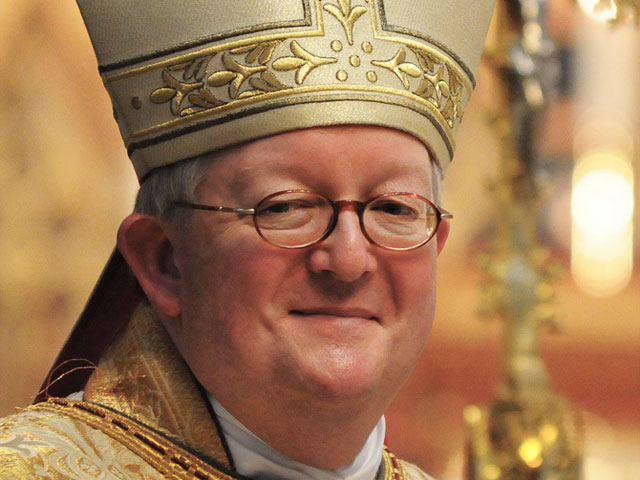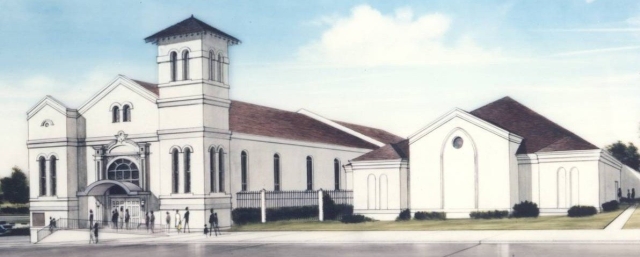Eastern Orthodox Christians who follow events in the ancient homelands of the Eastern church have had May 29th marked on their calendars for several weeks now.
Why is that? Because of the following news, or potential news (this particular story is care of a mainstream news site in Finland). Note the time element at the end of this passage:
Prime Minister Recep Tayyip Erdogan’s government plans to turn Istanbul’s Hagia Sofia Basilica into a mosque in the afternoon and evening and a museum in the morning.
The historical monument, which draws millions of tourists every year, will have the Byzantine frescoes covering its walls cast into shadow by “dark light” so as to avoid offending Islam. The government would thus like to turn what is today seen as a symbol of Christianity back into a place of worship for Muslims, as it was after the Ottoman conquest of Constantinople in 1453.
Confirmation of the plan came … from the Turkish pro-government daily Yeni Safak, after press leaks … reported the prime minister’s intention to pray in the Byzantine basilica prior to the August presidential elections, possibly as early as May 29.
The date is a highly symbolic one, as it marks the 561st anniversary of the fall of Constantinople into the hands of the Ottomans. A few days later the basilica became a mosque on the orders of Mehmet II the Conqueror ad remained so until 1934, when on the decision of the father of the modern Turkish “secular” Republic Mustafa Kemal Ataturk it was made into a museum.
Of course, for millions of traditional Muslims it is impossible for a building — once it has been used for Islamic worship — to cease being a mosque. This is another one of those issues that leads to debate INSIDE Islam, as can be seen by this debate in Turkey.
At the same time, however, Hagia Sophia is one of the most important Christian holy sites in the world, especially for Eastern Orthodox believers. It contains remnants of Christian frescos that are priceless and of great historical importance, over and above their importance as iconography. The building as a whole, of course, is one of the wonders of the world (click here for a YouTube overview) and for many represents the heart of what remains of Byzantine culture.
So, did Erdogan lead prayers there yesterday or not? If he didn’t carry through on that goal, why not?
I had hoped for coverage from Reuters, at the very least, after previous stories, such as this recent offering:
(Reuters) — Thousands of devout Muslims prayed outside Turkey’s historic Hagia Sophia museum … to protest a 1934 law that bars religious services at the former church and mosque.
Worshippers shouted, “Break the chains, let Hagia Sophia Mosque open,” and “God is great” before kneeling in prayer as tourists looked on.
Turkey’s secular laws prevent Muslims and Christians from formal worship within the 6th-century monument, the world’s greatest cathedral for almost a millennium before invading Ottomans converted it into a mosque in the 15th century.
“Keeping Hagia Sophia Mosque closed is an insult to our mostly Muslim population of 75 million. It symbolises our ill-treatment by the West,” Salih Turhan, head of the Anatolian Youth Association, which organised the event, told the crowd, whose male and female worshippers prayed separately according to Islamic custom.
Yes, the size, timing and make-up of this rally does have political implications, as well as religious significance. It’s clear that Erdogan’s coalition includes people who will demand this change.
As Reuters noted:
The rally’s size and location signals more tolerance for religious expression under Prime Minister Tayyip Erdogan, whose party traces its roots to a banned Islamist movement. His government has also allowed Christian worship at sites that were off-limits for decades, as it seeks to bring human rights in line with the European Union, which it aims to join. …
“As the grandchildren of Mehmet the Conqueror, seeking the re-opening Hagia Sophia as a mosque is our legitimate right,” Turhan said in an interview.
Some reports have suggested that the Islamic government, after decades of protest, may consider opening the long-closed Halki Seminary, which is on an island close to Istanbul. As a trade for Hagia Sophia returning to official status as a house of worship for Muslims?
This raises so many questions for journalists, especially in light of the current trouble state of talks between Turkey and the European Union.
But I know that some would ask: Why not make a global push for Hagia Sophia to return to Christian status? The previous Reuters report did a solid job with that question:
In 2010, 200 or so Greek American Orthodox aborted plans to pray at Hagia Sophia after the Turkish government threatened to block their entry into the country on security grounds. The Ecumenical Patriarchate, spiritual leader of the world’s 250 million Orthodox, does not support efforts to revert its former dominion into a church.
“We want it to remain a museum in line with the Republic of Turkey’s principles,” said Father Dositheos Anagnostopulos, the patriarch’s spokesman. “If it were to become a mosque, Christians wouldn’t be able to pray there, and if it became a church it would be chaos.”
Almost certainly violent chaos.
Stay tuned. Got news?











